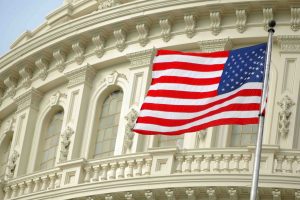In September, the House Energy and Commerce Committee voted to advance the Kids Online Safety Act (KOSA) and the Children and Teens’ Online Privacy Protection Act (COPPA 2.0) The Senate passed these bills in July, but combined them into the Kids Online Safety and Privacy Act immediately before the vote.
The House Energy and Commerce Committee returned them to separate bills and in the process, made substantial changes to KOSA. Many Committee members expressed concerns with these changes, but voted to advance KOSA regardless. COPPA 2.0 remained relatively unchanged and advanced with less debate. The House returns from recess November 12, but only has 20 legislative days left in the year. It is unclear if either bill will see a vote during that time.
The day before the House Energy and Commerce Committee was scheduled to mark-up KOSA and COPPA 2.0, Meta announced sweeping changes to teens’ Instagram accounts. All teens in the United States, Canada, Australia, the United Kingdom, and the European Union will automatically be placed in Teen Accounts, which default to higher privacy settings, halt notifications between 10:00 pm and 7:00 am, permit teens to more easily select types of content they want to see, automatically restrict sensitive content unless overridden, and remind teens to take a break from Instagram after 60 minutes.
A burst of state legislation in 2023 and earlier has been followed by a deluge of litigation. In August, the Ninth Circuit Court issued a ruling partially upholding an injunction against the California Age-Appropriate Design Codes Act (CA AADC or Kids Code). The law was initially enjoined last September. The CA AADC’s data protection impact assessment requirement remained enjoined, but the remainder of the case was remanded back to the district court for further consideration. In early September, the New Mexico Attorney General filed a complaint against Snap Inc., the owner of Snapchat. The unredacted complaint was released October 1, citing Snapchat’s failure to address sextortion on the platform. Meanwhile, the Texas Attorney General filed a lawsuit against TikTok claiming it violated the Securing Children Online through Parental Empowerment (SCOPE) Act. The SCOPE Act went into partial effect September 1, after large portions of it were blocked by a district court. TikTok faces yet another set of legal challenges, this time from 14 state attorneys general. The October 8 lawsuit against TikTok alleges the platform was intentionally addicting young users.

